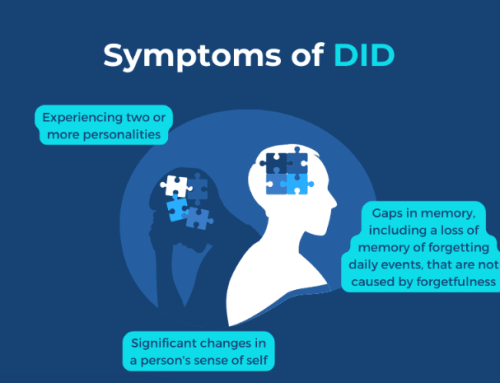Bipolar disorder is a complex and chronic mental health condition that affects millions of people worldwide. It is characterized by extreme mood swings, including episodes of mania and depression. One common question that arises is whether bipolar disorder worsens with age. Understanding the trajectory of bipolar disorder throughout a person’s life is crucial for effective management and support. So, If you are suffering from this disorder then you should consult with a psychiatrist in Lahore or take admission to the best mental hospital in Lahore.
In this section, we will explore the impact of aging on bipolar disorder and shed light on the factors that can influence its progression.
Let’s dive in to get more details.
The Nature of Bipolar Disorder
Bipolar disorder is a complex mental health condition that affects millions of people worldwide. It is characterized by recurring episodes of extreme mood swings, ranging from manic highs to depressive lows. The nature of bipolar disorder is such that it disrupts the normal balance of emotions, energy levels, and daily functioning. These mood swings can be intense and significantly impact various aspects of a person’s life, including their relationships, work, and overall well-being.
It’s important to note that bipolar disorder is a chronic condition, meaning that it typically lasts a lifetime. However, the specific symptoms and their severity can vary widely from person to person. Some individuals may experience more frequent and severe episodes, while others may have longer periods of stability between episodes. The pattern and course of bipolar disorder can also be influenced by factors such as genetics, environmental triggers, and the effectiveness of treatment.
Understanding Bipolar Disorder Symptoms
Bipolar disorder is characterized by extreme mood swings that alternate between manic episodes and depressive episodes. During manic episodes, individuals may experience elevated mood, increased energy levels, impulsivity, and a heightened sense of self-esteem. Depressive episodes, on the other hand, involve persistent sadness, loss of interest or pleasure, changes in sleep and appetite, feelings of worthlessness, and thoughts of self-harm.
Factors Influencing the Course of Bipolar Disorder
Several factors can influence the course and progression of bipolar disorder. These include:
- Genetic Predisposition: Family history of bipolar disorder or other mental health conditions can increase the risk of developing the disorder.
- Environmental Triggers: Stressful life events, substance abuse, or disruptions in sleep patterns can trigger the onset or exacerbation of bipolar episodes.
- Treatment and Medication: Consistent adherence to treatment plans, including therapy and medication, can significantly impact the management and stabilization of bipolar disorder symptoms.
Understanding the nature of bipolar disorder symptoms and recognizing the factors that influence its course can help individuals, their families, and healthcare professionals develop effective strategies for managing the condition throughout the lifespan.
Bipolar Disorder in Early Adulthood
Early adulthood is a critical period for individuals with bipolar disorder, as symptoms often first emerge during this stage of life. It can be a time of significant challenges and adjustments as young adults navigate personal and professional milestones while managing the impact of bipolar symptoms. Proper diagnosis, early intervention, and comprehensive treatment plans are crucial in helping individuals with bipolar disorder lead fulfilling lives and achieve their goals during this transformative phase.
Bipolar Disorder in Middle Age
As individuals with bipolar disorder enter middle age, they may face unique considerations and challenges. The management of symptoms and the overall impact of the disorder can vary, with some experiencing stability and others navigating fluctuations. Individuals in this stage of life need to maintain consistent treatment and support to minimize the potential impact of bipolar episodes on their personal and professional lives. Additionally, individuals may find it beneficial to explore strategies for stress management, self-care, and maintaining healthy lifestyle habits to promote overall well-being.
Bipolar Disorder in Late Adulthood
Bipolar disorder can continue to influence individuals in late adulthood, and it is essential to adapt treatment and support strategies to meet their evolving needs. While symptom severity may vary among individuals, maintaining consistent treatment and monitoring is crucial to managing bipolar episodes effectively. Additionally, older adults with bipolar disorder may benefit from a multidisciplinary approach that addresses their specific challenges, including comorbid health conditions and the potential impact of medication interactions.
Impact of Aging on Bipolar Disorder Symptoms
As individuals with bipolar disorder age, they may experience changes in the manifestation and severity of their symptoms. Some common factors that can influence bipolar disorder symptoms in late adulthood include:
- Physical Health Conditions: The presence of age-related physical health conditions, such as chronic pain or cardiovascular issues, can interact with bipolar disorder and potentially exacerbate mood symptoms.
- Cognitive Changes: Age-related cognitive changes, such as memory decline, can affect the ability to manage bipolar symptoms and adhere to treatment plans.
- Medication Interactions: As individuals age, they may be prescribed additional medications for other health conditions. It’s crucial to monitor potential interactions between these medications and bipolar disorder medications.
Managing Bipolar Disorder as You Age
To effectively manage bipolar disorder in late adulthood, it’s important to adopt strategies that address the unique challenges and needs of aging individuals. Here are some key considerations:
- Regular Monitoring: Regularly monitoring mood symptoms, medication effectiveness, and side effects can help identify any changes and facilitate timely adjustments to treatment plans.
- Self-Care and Stress Management: Prioritizing self-care activities, such as engaging in relaxation techniques, practicing good sleep hygiene, and maintaining a healthy lifestyle, can support overall well-being and help manage stress, which can trigger bipolar episodes.
- Social Support: Maintaining a strong support network, including family, friends, and mental health professionals, is vital for emotional support, encouragement, and assistance in navigating the challenges of bipolar disorder in late adulthood.
- Therapy and Counseling: Engaging in therapy or counseling sessions can provide valuable tools and coping strategies for managing bipolar symptoms and addressing any age-related concerns.
- Collaborative Care: Working closely with healthcare professionals, including psychiatrists, primary care physicians, and specialists managing other health conditions, is essential to ensure coordinated and comprehensive care.
Support and Treatment Options for Aging Individuals with Bipolar Disorder
A range of support and treatment options are available to assist aging individuals with bipolar disorder:
- Medication Management: Working closely with a psychiatrist or healthcare provider is crucial to ensure appropriate medication management, including monitoring for potential interactions with other medications and adjusting dosages as needed.
- Psychotherapy: Various forms of psychotherapy, such as cognitive-behavioral therapy (CBT) or interpersonal therapy (IPT), can provide valuable tools for managing bipolar symptoms, improving coping skills, and addressing any age-related concerns.
- Support Groups: Joining support groups specifically tailored for individuals with bipolar disorder can offer a sense of community, understanding, and encouragement from peers facing similar challenges.
- Education and Self-Advocacy: Staying informed about bipolar disorder, its treatment options, and available resources can empower individuals to actively participate in their own care and advocate for their needs.
By adapting treatment approaches, maintaining a support network, and practicing self-care, individuals with bipolar disorder can navigate the aging process while effectively managing their symptoms and living fulfilling lives.
Conclusion
Managing bipolar disorder in older adults requires a comprehensive and tailored approach that considers the unique challenges and needs of this population. By following treatment plans, implementing lifestyle adjustments, and seeking appropriate support, individuals with bipolar disorder can successfully navigate the aging process while effectively managing their symptoms.
Remember, you are not alone in this journey. Reach out to healthcare professionals, support groups, and loved ones for guidance and encouragement. With proper care and self-advocacy, it is possible to lead fulfilling and balanced lives while effectively managing bipolar disorder.





Leave A Comment